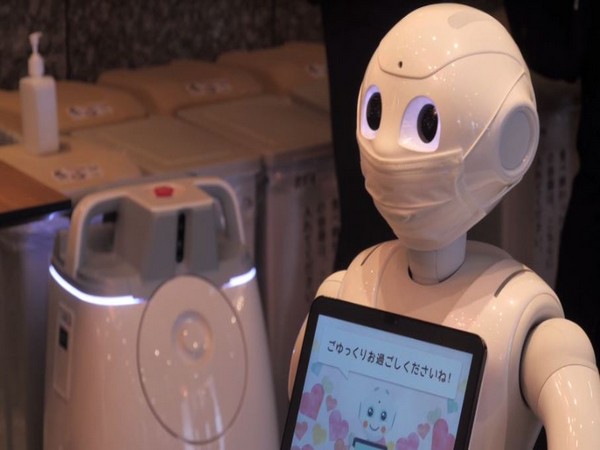Steve Biko Hospital welcomes mobile robot to improve treatment of patients
“Stevie is now officially the much adored baby of our ICU team and is stimulating much excitement throughout the hospital,” Paruk said.

- Country:
- South Africa
The Faculty of Health Sciences at the University of Pretoria (UP) and Steve Biko Academic Hospital have welcomed a mobile robot called Stevie to help improve the treatment of patients during the COVID-19 pandemic.
Named after Steve Biko - one of the most prominent leaders during South Africa’s anti-apartheid struggle – Stevie works at the hospital’s Intensive Care Unit (ICU) and will be vital in allowing for a bedside ward round attended by ICU teams across the globe.
This will be done through instant live discussion and communication daily between German and South African intensive-care unit teams.
Academic and Clinical Head of the Department of Critical Care at UP and Steve Biko Academic Hospital, Professor Fathima Paruk, said the gender-neutral Stevie is the second robot to be employed by UP, following Libby the robotic library assistant who arrived in 2019.
“Stevie is now officially the much-adored baby of our ICU team and is stimulating much excitement throughout the hospital,” Paruk said.
Stevie has a privacy handset which is a live phone to aid confidential communication during ward rounds; a stethoscope port where it can remotely relay information while a patient is being examined, and enables visualisation of detail for close-up diagnosis and patient care oversight with high-definition pan-tilt-zoom cameras.
“ICU specialists and their teams based in Germany at Charite University and Robert Koch Institute will join the South African ICU team in person through the robot’s digital screen. Both the South African and German teams, led by ICU specialists, will be able to interact virtually.
“This will enable the team from Germany to see the patient, look at the ICU monitors, and engage in discussions with patients. The ward round will involve discussing the medical condition and include a management plan over a secure line,” Professor Paruk said.
She said Stevie will be used for the benefit of all ICU patients, including COVID-19 patients as well as for exchanging ideas, specialist training, global collaborations, webinars and educational workshops, especially for highly selective or niche specialities in critical care.
Specialists will also be able to remotely advise upon and guide a bedside procedure.
In the context of clinical healthcare medicine, Professor Paruk said evidence garnered from this collaboration has the potential to inform and shape future practices in South Africa’s local critical-care setting, “considering that we struggle with a shortage of intensivists and ICU beds in South Africa”.
UP’s Faculty of Health Sciences Dean, Professor Tiaan de Jager, said telemedicine plays a crucial role in encouraging long-distance patient and clinician care.
He said COVID-19 has been a massive disruptor in especially healthcare and has inspired the sector to rethink its current systems and how they can be more efficient.
“This initiative is an interdisciplinary global telemedical collaboration between the Faculty of Health Sciences, the Department of Critical Care at Steve Biko Academic Hospital, the Enhanced Recovery after Intensive Care (ERIC)-Tele ICU at Charité Medical University in Berlin, and the Robert Koch Institute.
“The Faculty takes pride in responding to the demands of the fourth industrial revolution (4IR), which can aid patient care, enhance teaching and learning experience for students and support the university in conducting research that matters, thus leaving a positive impact on society. We are grateful to our collaborators and colleagues for ensuring that telemedicine can take centre stage and help us combat COVID-19,” De Jager said.
Country Relations Officer for the Centre for International Health Protection at Robert Koch Institute, Dr Evgeniya Boklage said telemedicine is the future and the COVID-19 pandemic has demonstrated this.
“We look forward to the exchange of experiences because each country has a different reality, which can bring forth various opportunities to learn from one another and improve patients’ lives,” Boklage said.
(With Inputs from South African Government Press Release)
ALSO READ
Hospital Ordered to Compensate for Unnecessary Covid-19 Treatment
Viral Video Misleads with False COVID-19 Fourth Wave Prediction
China's Call for Global Collaboration on COVID-19 Origins
WHO continues to urge China to share data five years after COVID-19
China's COVID-19 Data Contribution Under Microscope










